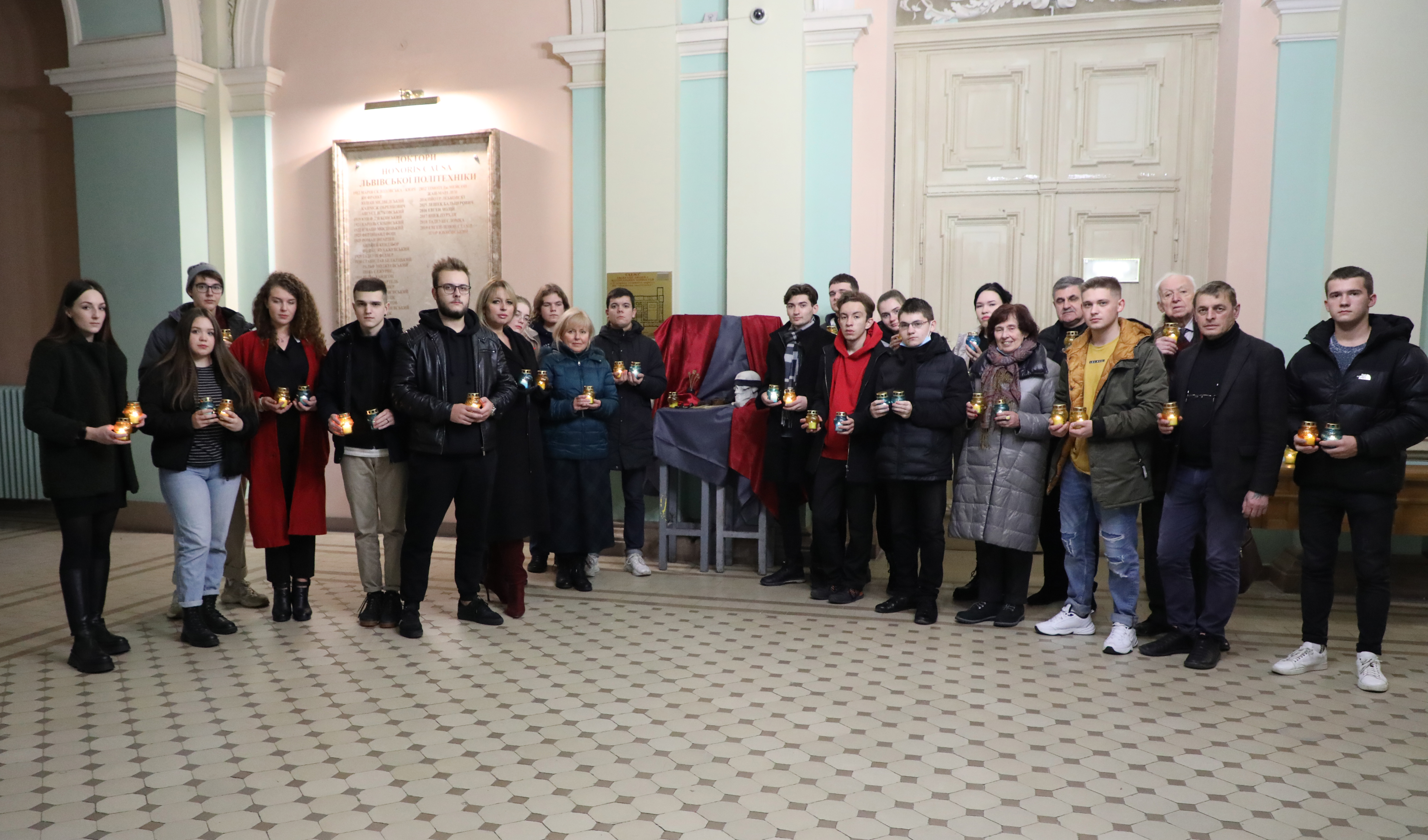During the day on November 26, a mournful music was played in the lobby next to the Assembly Hall, on the screen there were broadcasted eyewitness memories, and the opinions of researchers about a terrible anti-human tragedy that took place on Ukrainian lands in 1932–1933.
At the end of the working day Polytechnicians lit memorial candles and put them in front of the main building. Khrystyna Burshtynsk, a chairman of Prosvita Society, appealed to youth, emphasizing how important it is to preserve memories and share them with the next generations. Myron Burshtynskyi shared the memories of eyewitnesses of the Holodomor which he heard while being a student. At the end they prayed for the victims of this tragedy, carried out by the Soviet government.
This event in memory of innocent Ukrainians killed by man-made famine became a tradition in our University a long time ago. For the first time, it took place to the 60th anniversary of these events, for the second time – to the 70th anniversary and since then, Polytechnicians annually commemorate Ukrainians who starved to death and light a candle of national memory. James Mace, American historian, politologist, compiler of the report of the US Congress Commission on the Study of the Holodomor of 1932–193, was the first person in the world to substantiate and prove the genocidal character of the Holodomor. It was he who officially revealed the truth about the Holodomor to the whole world, explaining it simply and wisely: «I was given such a fate when your dead chose me».
Today we are terrified to realize how in the 1930s, the regime used the famine to destroy the nation, the spirit and identity of the Ukrainian people. It is impossible to imagine how people of all ages, including children, starved to death. Fortunately, witnesses, who managed to convey the truth about it to the world, were found. For example, the Ukrainian writer Vasyl Barka wrote about the Holodomor in his novel «Yellow Prince». English Reporter Gareth Jones, about whom the movie «Price of Truth» was released two years ago, testified: «I went through a lot of villages ... Everywhere I heard: «We do not have bread. We die!».
At that time bread could save those people, but their bread was taken away. Today, they can be saved by our memory, which will not allow us to forget the truth about the crimes of repressive regime.
So let’s light a candle of memory. Its light will warm the souls of those innocently starved to death and, according to Mace, will illuminate «a future without victims, without violence, and without horrors».
